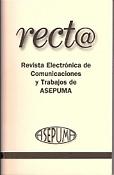¿El cambio de entrenador de fútbol durante la temporada mejora el rendimiento del equipo?
Keywords:
Fútbol, Entrenadores, DEA, MalmquistAbstract
The football teams take advantage of the temporary interval between the end one season and the beginning of the following one to come to reconstruct their groups of players and some times to contract new trainers or coachs. This last one usually happens when the teams has not reached in the season that finalizes the goal pursued by the club, or the trainer goes away by them to have reached and to look for new challenges in his race.
Many teams in which the development of the season is not agreed with the initial expectations, comes to make some change in the sport slope, in order to be able to print a new impulse to the present trajectory. Most of the teams resort to change to the trainer (dismissing the present one) to half of season, looking for the necessary chance to be able to change the tendency. When the wished objective is not obtained short term, it changes to the trainer again, and thus some teams can even finish the season with three and four trainers. In the present work, we are going to deepen in this fact for the case of Spanish League of First Division, in two seasons successive, using the Index of Malmquist. In the study the 17 teams only takes part that is common to the two analyzed seasons (2007/08 and 2008/09), since between both there are three teams that has descended to lower Division (Second Division) and other 3 teams has ascended, occupying its place in the First Division. The Malmquist index allows to disturb the changes of technological productivity change or change in efficiency.
Downloads
Publication Facts
Reviewer profiles N/A
Author statements
Indexed in
-
—
- Academic society
- N/A
- Publisher
- UMA Editorial. Universidad de Málaga
Downloads
Published
How to Cite
Issue
Section
License

This work is licensed under a Creative Commons Attribution-NonCommercial 4.0 International License.





